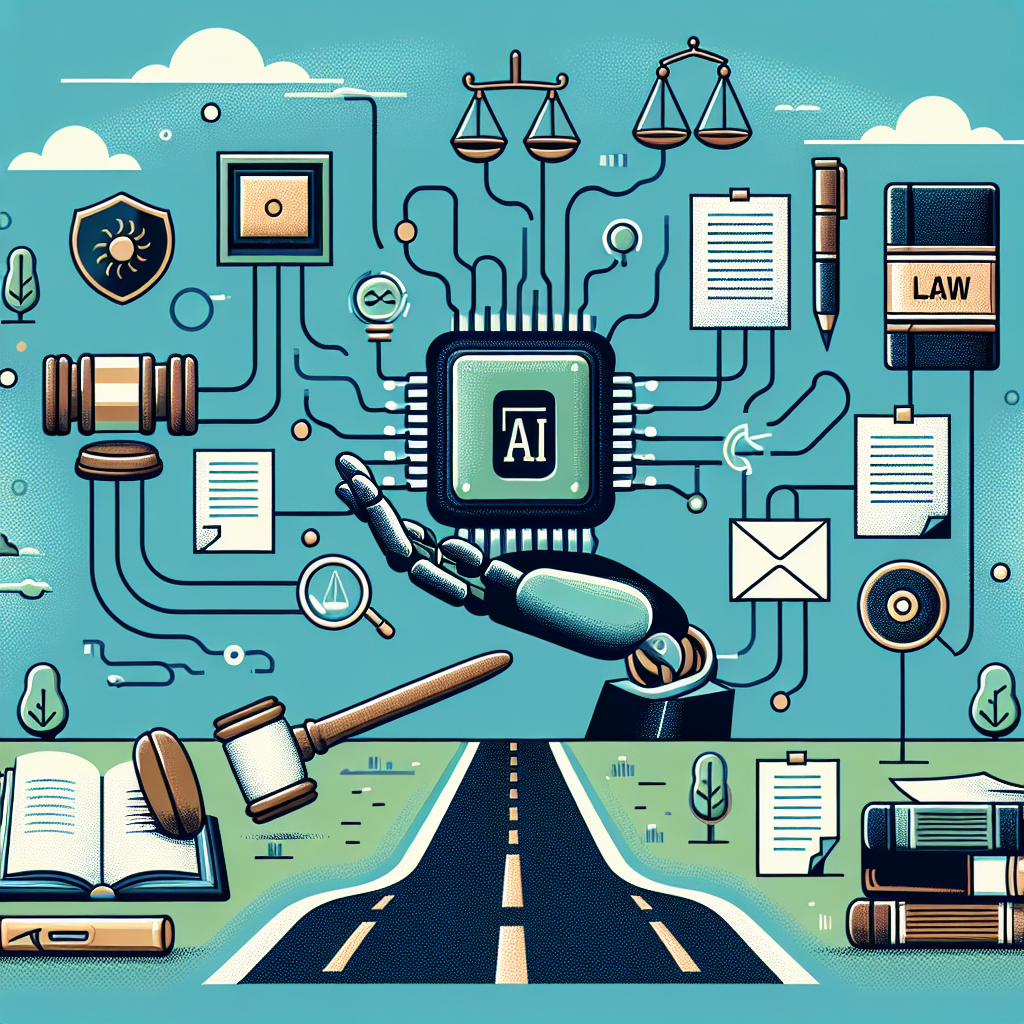AI Automation in the Legal Industry: Opportunities and Challenges
The legal industry is not immune to the disruptive force of artificial intelligence (AI) and automation. As technology continues to advance at a rapid pace, law firms and legal professionals are increasingly turning to AI-powered tools to streamline their processes, enhance efficiency, and deliver better outcomes for their clients. However, while AI automation offers numerous opportunities for the legal industry, it also presents a number of challenges that must be carefully considered and addressed. In this article, we will explore the opportunities and challenges of AI automation in the legal industry and discuss how legal professionals can leverage this technology to their advantage.
Opportunities of AI Automation in the Legal Industry
1. Increased Efficiency: One of the key benefits of AI automation in the legal industry is the ability to streamline time-consuming tasks and processes. AI-powered tools can analyze large volumes of data, identify patterns, and generate insights much faster and more accurately than human professionals. This can help legal professionals to save time, reduce errors, and focus on more strategic and high-value work.
2. Improved Decision-Making: AI automation can also help legal professionals to make better decisions by providing them with access to more accurate and relevant information. For example, AI-powered tools can analyze case law, statutes, and regulations to identify relevant precedents and legal arguments, helping lawyers to build stronger cases and make more informed decisions.
3. Enhanced Client Service: By leveraging AI automation, law firms can improve the quality and speed of their services, leading to higher client satisfaction. AI-powered tools can help legal professionals to respond to client inquiries more quickly, deliver more accurate advice, and provide better outcomes for their clients.
4. Cost Savings: AI automation can also help law firms to reduce costs by automating routine tasks and processes. By using AI-powered tools to handle tasks such as document review, legal research, and contract analysis, law firms can free up their resources to focus on more strategic and high-value work, leading to cost savings and increased profitability.
Challenges of AI Automation in the Legal Industry
1. Data Privacy and Security: One of the biggest challenges of AI automation in the legal industry is the need to protect sensitive client data and maintain confidentiality. As legal professionals increasingly rely on AI-powered tools to analyze and process large volumes of data, it is crucial to ensure that appropriate security measures are in place to protect against data breaches and unauthorized access.
2. Ethical and Regulatory Considerations: AI automation raises a number of ethical and regulatory considerations for the legal industry. For example, legal professionals must ensure that AI-powered tools are used in compliance with ethical guidelines and professional standards, such as the duty of confidentiality and the duty of competence. In addition, regulators are increasingly scrutinizing the use of AI in the legal industry, raising questions about transparency, accountability, and bias in automated decision-making.
3. Resistance to Change: Implementing AI automation in the legal industry can be met with resistance from legal professionals who may be reluctant to adopt new technologies or change their established ways of working. To overcome this challenge, law firms must invest in training and education to help their staff understand the benefits of AI automation and develop the necessary skills to effectively leverage this technology.
4. Quality Assurance: While AI-powered tools can help legal professionals to improve efficiency and accuracy, there is always a risk of errors or biases in automated decision-making. To mitigate this risk, law firms must implement robust quality assurance processes to ensure that AI-powered tools are used appropriately and produce reliable results.
FAQs
Q: How can AI automation help legal professionals to improve efficiency?
A: AI automation can help legal professionals to improve efficiency by streamlining time-consuming tasks and processes, such as document review, legal research, and contract analysis. By using AI-powered tools to handle routine tasks, legal professionals can save time, reduce errors, and focus on more strategic and high-value work.
Q: What are some examples of AI-powered tools that are commonly used in the legal industry?
A: Some examples of AI-powered tools that are commonly used in the legal industry include contract management software, e-discovery tools, legal research platforms, and predictive analytics tools. These tools can help legal professionals to analyze data, identify patterns, and generate insights to support their decision-making processes.
Q: How can legal professionals ensure that AI-powered tools are used ethically and in compliance with regulatory requirements?
A: Legal professionals can ensure that AI-powered tools are used ethically and in compliance with regulatory requirements by implementing appropriate safeguards and controls. This may include conducting regular audits of AI systems, providing training and education to staff on the ethical use of AI, and engaging with regulators to ensure that AI systems are used in a transparent and accountable manner.
Q: What are some best practices for law firms looking to implement AI automation?
A: Some best practices for law firms looking to implement AI automation include conducting a thorough assessment of their needs and objectives, selecting the right AI-powered tools for their specific requirements, investing in training and education for their staff, and implementing robust quality assurance processes to ensure the reliability and accuracy of AI systems.
In conclusion, AI automation offers numerous opportunities for the legal industry, including increased efficiency, improved decision-making, enhanced client service, and cost savings. However, it also presents a number of challenges, such as data privacy and security, ethical and regulatory considerations, resistance to change, and quality assurance. By carefully considering and addressing these challenges, legal professionals can leverage AI automation to their advantage and transform the way they deliver legal services to their clients.

